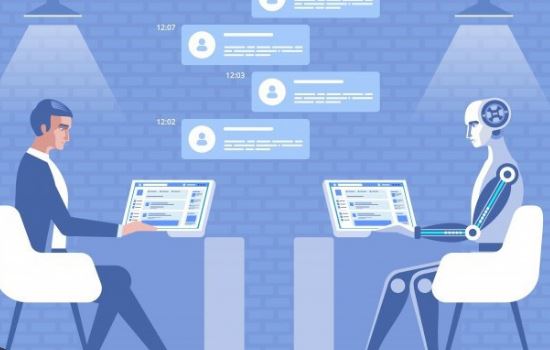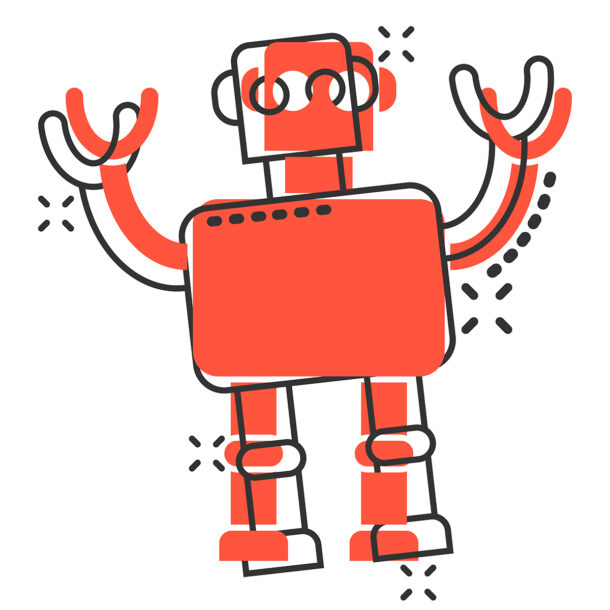How are chatbots used in recruiting? In the ever-evolving world of recruiting, staying ahead of the curve is essential. One of the most significant advancements in recruitment technology is the integration of chatbots. Chatbots, powered by artificial intelligence and natural language processing, have transformed the way companies engage with candidates. This article delves into how chatbots are used in recruiting, their applications, benefits, and future trends.
What is a Chatbot and How Does it Work?
A chatbot is an AI-powered program designed to simulate conversation with users through messaging platforms. Chatbots have become increasingly popular in various industries, including recruiting. Here’s how they work:
- Natural Language Processing (NLP): Chatbots use NLP to understand and interpret human language. This allows them to communicate effectively with candidates.
- Machine Learning: Chatbots learn from past interactions to improve their responses.
- Integration with Databases: Chatbots can access and retrieve information from databases, enabling them to answer questions accurately.
In recruiting, chatbots are often the first point of contact for candidates. They can answer queries, schedule interviews, and even screen applicants.
The Role of Chatbots in Recruiting
Chatbots have become an integral part of the recruiting process. Here’s why:
- Efficiency: Chatbots can quickly screen candidates and answer queries, saving recruiters time.
- Availability: Unlike humans, chatbots are available 24/7, ensuring that candidates can always get the information they need.
- Improved Candidate Experience: Chatbots provide instant responses, which candidates appreciate.
- Data Collection: Chatbots can collect data from candidates, which can be used for analytics.
Benefits of Using Chatbots in Recruiting
- Cost Savings: By automating initial screening and scheduling, chatbots can significantly reduce recruitment costs.
- Enhanced Candidate Engagement: With their ability to provide instant responses, chatbots keep candidates engaged.
- Better Quality of Hire: Chatbots can ensure that only qualified candidates move forward in the recruitment process.
Applications of Chatbots in the Recruitment Process
Chatbots can be used in various stages of the recruitment process:
- Screening Candidates: Chatbots can ask candidates pre-determined questions to determine if they meet the basic qualifications for a position.
- Scheduling Interviews: Chatbots can coordinate with candidates to schedule interviews at convenient times.
- Answering FAQs: Chatbots can provide immediate answers to frequently asked questions about the company and the application process.
- Collecting Feedback: Post-interview, chatbots can collect feedback from candidates about their experience.
Customizing Chatbots for Recruitment
Companies can customize chatbots to suit their specific recruitment needs. Custom-built chatbots can:
- Reflect the company’s brand voice and values.
- Be programmed with company-specific information.
- Integrate with the company’s Applicant Tracking System (ATS).
Legal and Ethical Considerations
When using chatbots in recruiting, companies must consider legal and ethical implications:
- Data Privacy: Chatbots collect personal data from candidates. It’s essential to ensure that this data is handled securely and complies with data protection laws.
- Bias and Discrimination: Chatbot algorithms must be regularly reviewed to ensure they do not inadvertently discriminate against certain groups of candidates.
Challenges and Limitations of Using Chatbots
While chatbots offer numerous benefits, they are not without challenges:
- Language Interpretation: Chatbots may struggle with understanding slang or colloquial language.
- Lack of Human Touch: Some candidates may prefer human interaction, especially for more complex queries.
Future Trends and the Evolution of Chatbots in Recruiting
As technology continues to advance, chatbots are expected to become even more integrated into the recruiting process. Future trends include:
- Advanced Natural Language Processing: As NLP improves, chatbots will be able to understand and communicate more effectively with candidates.
- Integration with Other Technologies: Chatbots will likely integrate with other technologies such as video interviewing and virtual reality.
- Data-Driven Insights: Chatbots will provide recruiters with data-driven insights to make more informed decisions.
Conclusion
Chatbots have already made a significant impact on the recruiting process, and their role is only expected to grow. From screening candidates to scheduling interviews and improving candidate experience, chatbots offer numerous benefits. However, it’s essential for companies to consider the legal and ethical implications and be aware of the limitations.
FAQs
- What are the benefits of using chatbots in recruiting?
- Chatbots can screen candidates, schedule interviews, answer FAQs, and improve candidate experience, leading to cost savings and increased efficiency.
- How do chatbots screen candidates?
- Chatbots can ask candidates pre-determined questions to determine if they meet the basic qualifications for a position.
- Can chatbots schedule interviews for recruiters?
- Yes, chatbots can coordinate with candidates to schedule interviews at convenient times.
- How do chatbots improve candidate experience?
- Chatbots provide instant responses to candidate queries, keeping them engaged and informed throughout the recruitment process.
- Are there any legal considerations when using chatbots for recruiting?
- Yes, companies must ensure that the data collected by chatbots is handled securely and complies with data protection laws. Additionally, chatbot algorithms must be free from biases that could lead to discrimination.
Take the Next Step
Are you ready to revolutionize your recruiting process with chatbots? Book a demo with us to explore how chatbots can streamline your recruiting efforts and enhance candidate experience.
Learn More About Chatbots
Interested in diving deeper into the world of chatbots? Visit Recruitment Chatbots: The Future of Hiring to find out more about chatbots and how they are changing the landscape of recruiting.


